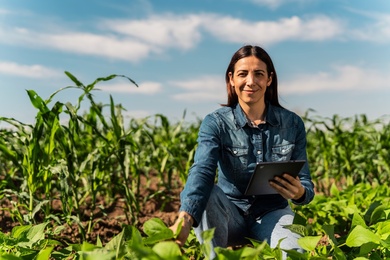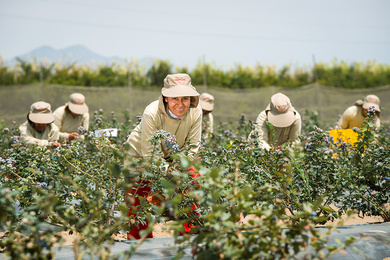Banks can make the world a better place — here’s how

[caption id="attachment_4340" align="alignleft" width="314"] Banks that invest in sustainability create a ripple effect across the companies they lend to[/caption]
Banks that invest in sustainability create a ripple effect across the companies they lend to[/caption]
Banks have been hard-pressed to turn this image around and restore the public’s faith in their moral compass. One opportunity to do so is by building trust through benevolence, as the Harvard Business Review reports. Research indicates that institutions only manage to build long-term trust when they can demonstrate that they share the values and interests of their clientele.
Sustainable business practices and environmental protection are issues steadily moving to the top of the list of consumer priorities, driven by undeniable evidence of how human activity is changing the global climate and by the emergence of a new generation of consumers who care more deeply about the environment than their parents.
So what can banks do to make their business more sustainable?
There is international consensus on a set of social and environmental criteria that banks can leverage to strengthen sustainability across their business. In particular, banks can:
1. Establish a list of excluded activities they won’t finance
Banks care where their money goes and often make sure to reduce their negative impact by preventing certain destructive behaviors. For example, they know better than to invest in activities involving harmful or exploitative forms of labor, irresponsible logging, gambling or human trafficking. And there are more. Development banks, including the Inter-American Investment Corporation (IIC), have a list of activities that they will not consider for potential financing.
2. Develop procedures on how to screen projects from an environmental and social perspective
When banks commit to social and environmental responsibility, they ensure their money is used not just profitably, but also conscientiously. Once they have learned how to classify and mitigate social and environmental risk, banks are able to allocate their funds more responsibly. This, of course, can only be achieved by strengthening the internal culture through comprehensive training of the entire workforce.
3. Decide how to deal with high risk projects
Banks can assess the impact of their financing activities and decide if it is worth supporting a company to develop the necessary tools to tackle existing challenges.
When you talk to banks in Latin America and the Caribbean, they often say that the problem is not a lack of knowing what to do, but how to do it. One group of banks that walks the walk is La Mesa de Finanzas Sostenibles of Paraguay. Currently made up of seven commercial banks, the group came together in 2012 and began working on developing sustainable practices.
“Back then, we were looking to attract lenders,” says La Mesa’s director Jorge Sienkawiec, who went on to explain that what they found was that in addition to scaling up their own resources, they could help entire industries in their country expand their markets abroad. What’s more, since transitioning to more sustainable practices, the banks have managed to reduce their credit risk, while also bringing down operational and capital costs.
Training and know-how are key ingredients in this context. At the IIC, we have been training banks in sustainability for the past 16 years. Our annual Sustainability Week facilitates the sharing of best practices among banks from all over Latin America and the Caribbean. Some of the institutions we work with have more resources than others and while some are well along in the process, others are just taking their first steps. What matters is that they face similar challenges and that they benefit from exchanging ideas on what has worked for them.
Nowadays, banks and businesses feel increasing pressure from customers and civil society to do their part to combat climate change and social inequity. As a whole, the task of society is to preserve the planet for future generations, and financial institutions have an important role to play. By embracing sustainable practices, banks can make the world a better place — and they also have a tremendous opportunity to build trust and drive their business through a new image.
About the author
Angela Miller manages the IIC's Development Effectiveness Division, which evaluates the environmental, social, and corporate governance aspects of projects in order to heighten the IIC’s developmental impact in the region. The Division also tracks the development outcomes of IIC operations.
LIKE WHAT YOU JUST READ?
Subscribe to our mailing list to stay informed on the latest IDB Invest news, blog posts, upcoming events, and to learn more about specific areas of interest.
Subscribe



